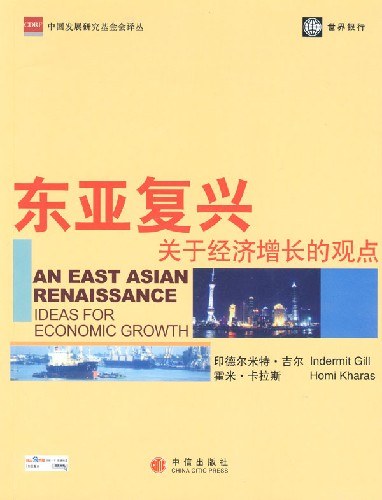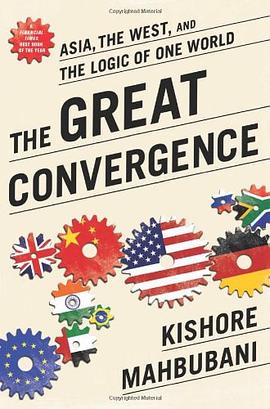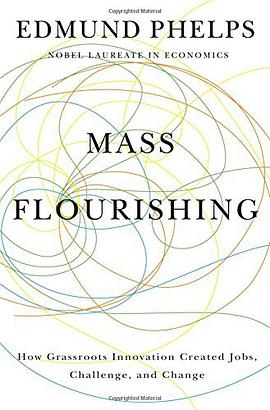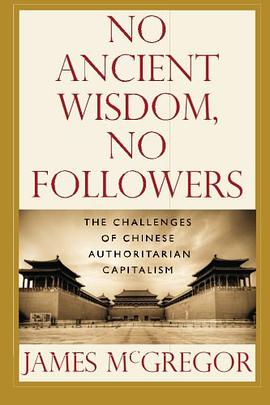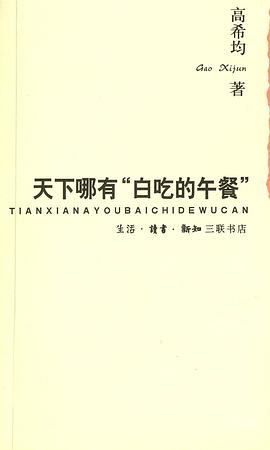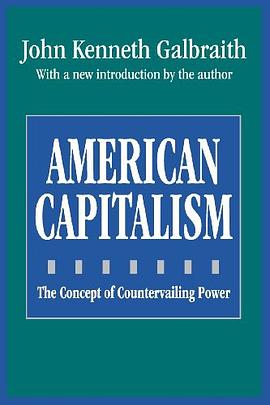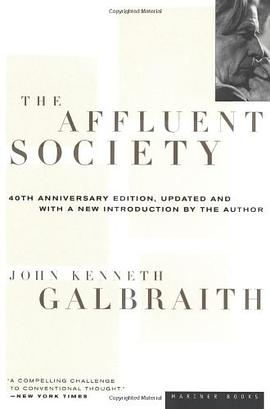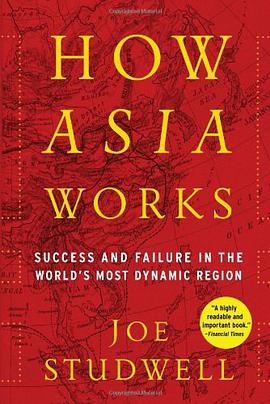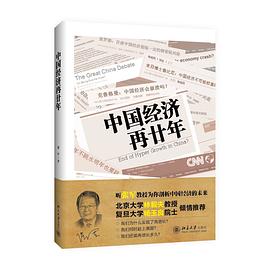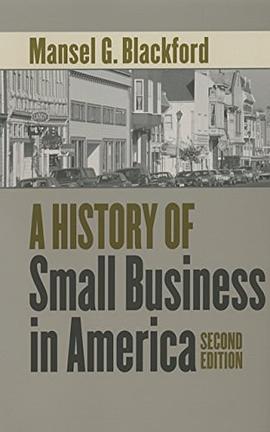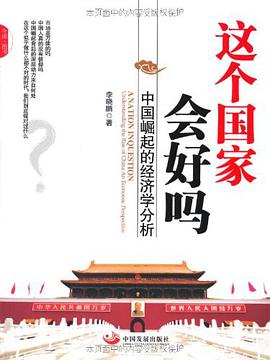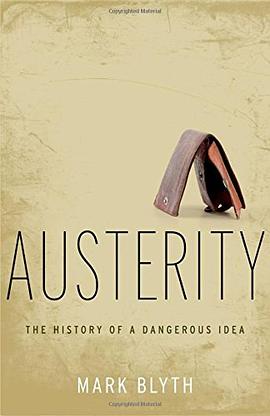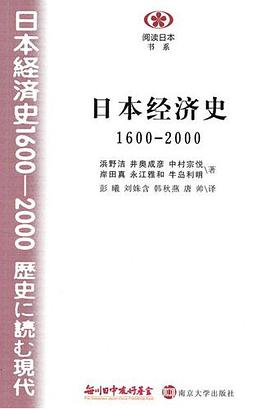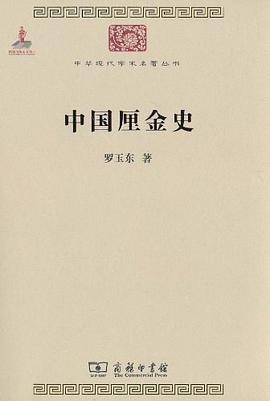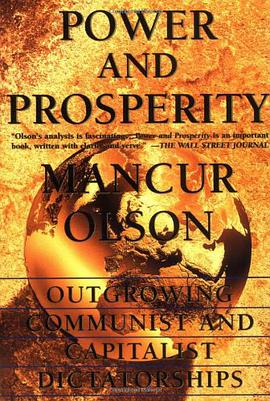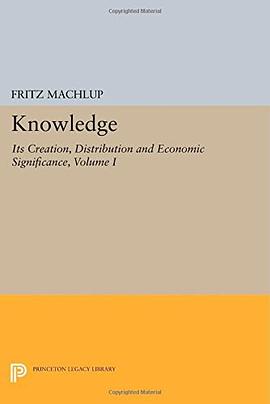經濟學
东亚复兴 豆瓣
作者:
(美)印德尔米特·吉尔
/
(美)霍米·卡拉斯
译者:
黄志强
中信出版社
2008
- 4
1997年亚洲金融危机爆发,转瞬之间,10年已过。金融危机在历史上给人类留下过惨痛的回忆。20世纪30年代的大萧条过后,世界大战随即爆发。80年代拉丁美洲的债务危机过后,经济陷入长期停滞。然而,90年代亚洲金融危机之后,大多数东亚国家却成功从危机中走出,产业结构大幅调整,对外贸易大幅啬,公司治理获得改善,金融监管显著提升……如今,东亚已再度成为世界经济的火车头。本书从贸易、创新、金融、城市以及反腐败等角度揭开了这一奇迹背后的秘密。同时,本书更提出增长中必然面临的动力与阻力,特别是从落后国家进入中等收入国家行列将遭遇的发展陷阱:环境、拥堵和腐败,“可持续发展”是东亚各国最重要的课题。
本书是世界银行东亚与太平洋事务局首席经济学家办公室的研究报告。世界银行每四年对东亚经济增长进行一项主题研究,本书是世界银行继《东亚奇迹》、《东亚的教训》和《东亚奇迹反思》之后的又一次权威之作。
本书是世界银行东亚与太平洋事务局首席经济学家办公室的研究报告。世界银行每四年对东亚经济增长进行一项主题研究,本书是世界银行继《东亚奇迹》、《东亚的教训》和《东亚奇迹反思》之后的又一次权威之作。
The Great Convergence 豆瓣
作者:
Kishore Mahbubani
PublicAffairs
2014
- 3
Mass Flourishing 豆瓣
作者:
Edmund S. Phelps
Princeton University Press
2013
- 8
In this book, Nobel Prize-winning economist Edmund Phelps draws on a lifetime of thinking to make a sweeping new argument about what makes nations prosper - and why the sources of that prosperity are under threat today. Why did prosperity explode in some nations between the 1820s and 1960s, creating not just unprecedented material wealth but "flourishing" - meaningful work, self-expression, and personal growth for more people than ever before? Phelps makes the case that the wellspring of this flourishing was modern values such as the desire to create, explore, and meet challenges. These values fueled the grassroots dynamism that was necessary for widespread, indigenous innovation. Most innovation wasn't driven by a few isolated visionaries like Henry Ford; rather, it was driven by millions of people empowered to think of, develop, and market innumerable new products and processes, and improvements to existing ones. Mass flourishing - a combination of material well-being and the "good life" in a broader sense - was created by this mass innovation. Yet indigenous innovation and flourishing weakened decades ago. In America, evidence indicates that innovation and job satisfaction have decreased since the late 1960s, while postwar Europe has never recaptured its former dynamism. The reason, Phelps argues, is that the modern values underlying the modern economy are under threat by a resurgence of traditional, corporatist values that put the community and state over the individual. The ultimate fate of modern values is now the most pressing question for the West: will Western nations recommit themselves to modernity, grassroots dynamism, indigenous innovation, and widespread personal fulfillment, or will we go on with a narrowed innovation that limits flourishing to a few? A book of immense practical and intellectual importance, Mass Flourishing is essential reading for anyone who cares about the sources of prosperity and the future of the West.
捆住市场的手 豆瓣
The Hesitant Hand: Taming Self-Interest in the History of Economic Ideas
作者:
【美】斯蒂夫•G. 梅德玛(Steven G. Medema)
译者:
启蒙编译所
中央编译出版社
2014
- 3
亚当•斯密于1776年提出了一个观点,彻底颠覆了传统的经济学理论。他宣称,人们追逐私利的行为只受市场本身的调节,而不受政府的管控。这种追逐私利的行为就像一只看不见的手,将对市场进行自动的调节,从而使整个社会最大程度地获益。《捆住市场的手》这本书回顾了亚当•斯密之后两百年的经济学者是怎样挑战或再次肯定斯密的理论的。一些学者坚持认为,在市场不稳定的情况下,需要政府代替整个社会对市场进行干预。另一些学者则认为,政府的干预最终会给市场和社会造成损害。
斯蒂夫•G. 梅德玛探讨的这个主题,200年来,有可能是现代经济学领域中被人们争论最多的一个议题。梅德玛详尽地回顾了19世纪40年代到20世纪50年代市场失灵理论,以及随后对市场失灵理论进行批驳的芝加哥学派和弗吉尼亚学派的观点。从约翰•密尔到亨利•西季威克和庇古所代表的剑桥传统的福利经济学派,再到对剑桥学派提出挑战的罗纳德•科斯,最后是重新肯定亚当•斯密学说的批评家们,梅德玛向我们详细列举了关于市场控制的各种争议。他在书中向我们展示了,在边际革命之后——和亚当•斯密之前的前古典主义学者一样——新古典主义经济学家相信政府可以有效地缓解利己主义所带来的不良后果,芝加哥和弗吉尼亚学派则严厉地批驳了这种观点,证明利己主义同样能够影响政府,并在诸多并不完善的替代方案中为人们提供了一种相对合理的选择。
《捆住市场的手》还描写了政府是怎样一直致力于从经济上解决利己主义对公众利益造成的负面影响,及其采取的具体措施。
专家推荐
亚当•斯密认为市场机制相当于一只看不见的手,这种机制能成功地约束人们自利的行为,自18世纪后期以来,亚当•斯密的这种理论已经成为我们的政策争论的中心……梅德玛的《捆住市场的手》中详细描述了亚当•斯密时代至今200年间,人们就他的理论进行的争论……我向读者强烈推荐《捆住市场的手》。
——R.B.埃米特,《选择》杂志
《捆住市场的手》向读者介绍了自古希腊以来(特别是自亚当•斯密的时代以来)人类社会经济福利的演化情况,在某种程度上,这本书具有很强的专业性。但同时……我发现《捆住市场的手》也是一本发人深省的优秀著作。在福利、市场失灵和国家作用等诸多问题上,不同年代的人在不同角度上对福利的理解和评价的确能给当代人许多有益的启示。
——黛安•科伊尔,《开明经济学家》
这是一本出色的著作。它既涉及了经济学中的一个重要议题,文笔又引人入胜,让人丝毫不觉得枯燥。
——彼得•格鲁尼维根,《经济史回顾》杂志
这是一本引人入胜的好书,有趣、博学、公正,文字流畅。总之,我从这本书里学到了很多。
——丹尼斯•奥布莱恩,英国杜伦大学名誉教授
这是一部能使许多读者感兴趣的著作,简明易懂,观点清晰,它甚至能吸引一部分通常对历史不感兴趣的经济学家。梅德玛在书中详细讲述了不同时代的经济学家对利己主义的不同态度,以及它怎样改变了人们对于政府和市场的认知。
——罗杰.E.贝克豪斯,英国伯明翰大学
斯蒂夫•G. 梅德玛探讨的这个主题,200年来,有可能是现代经济学领域中被人们争论最多的一个议题。梅德玛详尽地回顾了19世纪40年代到20世纪50年代市场失灵理论,以及随后对市场失灵理论进行批驳的芝加哥学派和弗吉尼亚学派的观点。从约翰•密尔到亨利•西季威克和庇古所代表的剑桥传统的福利经济学派,再到对剑桥学派提出挑战的罗纳德•科斯,最后是重新肯定亚当•斯密学说的批评家们,梅德玛向我们详细列举了关于市场控制的各种争议。他在书中向我们展示了,在边际革命之后——和亚当•斯密之前的前古典主义学者一样——新古典主义经济学家相信政府可以有效地缓解利己主义所带来的不良后果,芝加哥和弗吉尼亚学派则严厉地批驳了这种观点,证明利己主义同样能够影响政府,并在诸多并不完善的替代方案中为人们提供了一种相对合理的选择。
《捆住市场的手》还描写了政府是怎样一直致力于从经济上解决利己主义对公众利益造成的负面影响,及其采取的具体措施。
专家推荐
亚当•斯密认为市场机制相当于一只看不见的手,这种机制能成功地约束人们自利的行为,自18世纪后期以来,亚当•斯密的这种理论已经成为我们的政策争论的中心……梅德玛的《捆住市场的手》中详细描述了亚当•斯密时代至今200年间,人们就他的理论进行的争论……我向读者强烈推荐《捆住市场的手》。
——R.B.埃米特,《选择》杂志
《捆住市场的手》向读者介绍了自古希腊以来(特别是自亚当•斯密的时代以来)人类社会经济福利的演化情况,在某种程度上,这本书具有很强的专业性。但同时……我发现《捆住市场的手》也是一本发人深省的优秀著作。在福利、市场失灵和国家作用等诸多问题上,不同年代的人在不同角度上对福利的理解和评价的确能给当代人许多有益的启示。
——黛安•科伊尔,《开明经济学家》
这是一本出色的著作。它既涉及了经济学中的一个重要议题,文笔又引人入胜,让人丝毫不觉得枯燥。
——彼得•格鲁尼维根,《经济史回顾》杂志
这是一本引人入胜的好书,有趣、博学、公正,文字流畅。总之,我从这本书里学到了很多。
——丹尼斯•奥布莱恩,英国杜伦大学名誉教授
这是一部能使许多读者感兴趣的著作,简明易懂,观点清晰,它甚至能吸引一部分通常对历史不感兴趣的经济学家。梅德玛在书中详细讲述了不同时代的经济学家对利己主义的不同态度,以及它怎样改变了人们对于政府和市场的认知。
——罗杰.E.贝克豪斯,英国伯明翰大学
NO ANCIENT WISDOM, NO FOLLOWERS 豆瓣
作者:
[美国] James McGregor
Prospecta Press
2012
- 11
In the past three decades, China has risen from near collapse to a powerhouse -- upending nearly every convention on the world stage, whether policy or business. China is now the globe’s second largest economy, second largest exporter, a manufacturing machine that has lifted 500 million of its citizens from poverty while producing more than one million US dollar millionaires.
Then why do China’s leaders describe the nation’s economic model as “unstable and unsustainable”? Because it is.
James McGregor has spent 25 years in China as a businessman, journalist and author. In this, his latest highly readable book, he offers extensive new research that pulls back the curtain on China’s economic power. He describes the much-vaunted “China Model” as one of authoritarian capitalism, a unique system that, in its own way, is terminating itself. It is proving incompatible with global trade and business governance. It is threatening multinationals, which fear losing their business secrets and technology to China’s mammoth state-owned enterprises. It is fielding those SOEs – China’s “national champions” -- into a global order angered by heavily subsidized state capitalism. And it is relying on an outdated investment and export model that’s running out of steam.
What has worked in the past, won’t work in the future. The China Model must be radically overhauled if the country hopes to continue its march toward prosperity. The nation must consume more of what it makes. It must learn to innovate. It must unleash private enterprise.
And the Communist Party bosses? They must cede their pervasive and smothering hold on economic power to foster the growth, and thus social stability, that they can’t survive without. Government must step back, the state-owned economy must be brought to heel, and opportunity must be freed.
During the Tang Dynasty, an official in the imperial court observed: “No ancient wisdom, no followers.” He was lamenting that regime was headed alone into dangerous and uncharted waters without any precedent for guidance.
Again today – as McGregor makes clear – this is China’s greatest challenge.
Then why do China’s leaders describe the nation’s economic model as “unstable and unsustainable”? Because it is.
James McGregor has spent 25 years in China as a businessman, journalist and author. In this, his latest highly readable book, he offers extensive new research that pulls back the curtain on China’s economic power. He describes the much-vaunted “China Model” as one of authoritarian capitalism, a unique system that, in its own way, is terminating itself. It is proving incompatible with global trade and business governance. It is threatening multinationals, which fear losing their business secrets and technology to China’s mammoth state-owned enterprises. It is fielding those SOEs – China’s “national champions” -- into a global order angered by heavily subsidized state capitalism. And it is relying on an outdated investment and export model that’s running out of steam.
What has worked in the past, won’t work in the future. The China Model must be radically overhauled if the country hopes to continue its march toward prosperity. The nation must consume more of what it makes. It must learn to innovate. It must unleash private enterprise.
And the Communist Party bosses? They must cede their pervasive and smothering hold on economic power to foster the growth, and thus social stability, that they can’t survive without. Government must step back, the state-owned economy must be brought to heel, and opportunity must be freed.
During the Tang Dynasty, an official in the imperial court observed: “No ancient wisdom, no followers.” He was lamenting that regime was headed alone into dangerous and uncharted waters without any precedent for guidance.
Again today – as McGregor makes clear – this is China’s greatest challenge.
天下哪有“白吃的午餐”? 豆瓣
作者:
高希均
1996
日常生活的经济学解读,但更多地注入了作者本人的价值观和一个知识分子的社会责任感。如作为本书题目的《天下哪有“白吃的午餐”?》作者附识中谈到,重读十几年前所写的这篇文章,台湾社会依然弥漫着“白吃的午餐”的心理。并悲哀地说道:一个教书人的说服力委实有限。《愿天下人全是读书人》和《抖落一身俗气》则使读者更明确地感受到这一点。
一只iPhone的全球之旅 豆瓣
作者:
曾航
凤凰出版社
2011
- 10
《一只iPhone的全球之旅》讲述了iPhone幕后的故事。苹果的iPhone手机在美国设计,在日本制造关键零部件,由韩国制造最核心的芯片和显示屏,由台湾厂商供应另外一些零部件,最后在深圳的富士康工厂里组装,然后空运到美国,再被苹果商店门口排队的华人买走,走私回中国,然后卖到中国各地,然后又被深圳的手机作坊回收翻新再出售,最后被当作电子垃圾拆解回收……
本书作者曾航遍访了全球二十多家苹果供应商和合作伙伴,实地到日本、韩国,中国台湾、中国香港、深圳、苏州、长沙等地的苹果供应链走访,跟踪了一只iPhone的一生,还原出iPhone从设计、零部件制造、组装、运输、销售、走私、再销售、回收翻新直到被分解处理的全球之旅。
在iPhone背后,是世界上最让人惊叹的产业分工,上百家幕后厂商、数百万参与者共同的心血付出,让iPhone成为最成功的智能手机。
这本书讲述了大量乔布斯背后的幕后英雄的故事,包括主管苹果供应链的COO库克、苹果的设计高手伊夫、一手建立苹果零售体系的约翰逊,以及富士康、TPK、三星、LG、ARM等幕后厂商的故事。
iPhone的全球之旅极大地改变了全球IT产业的版图。它让富士康、ARM、三星、LG、宸鸿等苹果幕后企业迅速崛起壮大,而另一些企业则因此而逐渐暗淡。
《一只iPhone的全球之旅》揭示了苹果在乔布斯之外的强大竞争力,读完《一只iPhone的全球之旅》这本书,你会发现乔布斯并不是神,他背后的幕僚和众多合作伙伴,同样是苹果成功的关键。
本书作者曾航遍访了全球二十多家苹果供应商和合作伙伴,实地到日本、韩国,中国台湾、中国香港、深圳、苏州、长沙等地的苹果供应链走访,跟踪了一只iPhone的一生,还原出iPhone从设计、零部件制造、组装、运输、销售、走私、再销售、回收翻新直到被分解处理的全球之旅。
在iPhone背后,是世界上最让人惊叹的产业分工,上百家幕后厂商、数百万参与者共同的心血付出,让iPhone成为最成功的智能手机。
这本书讲述了大量乔布斯背后的幕后英雄的故事,包括主管苹果供应链的COO库克、苹果的设计高手伊夫、一手建立苹果零售体系的约翰逊,以及富士康、TPK、三星、LG、ARM等幕后厂商的故事。
iPhone的全球之旅极大地改变了全球IT产业的版图。它让富士康、ARM、三星、LG、宸鸿等苹果幕后企业迅速崛起壮大,而另一些企业则因此而逐渐暗淡。
《一只iPhone的全球之旅》揭示了苹果在乔布斯之外的强大竞争力,读完《一只iPhone的全球之旅》这本书,你会发现乔布斯并不是神,他背后的幕僚和众多合作伙伴,同样是苹果成功的关键。
American Capitalism 豆瓣
作者:
John Kenneth Galbraith
Transaction Publishers
1993
- 1
The Affluent Society 豆瓣
作者:
John Kenneth Galbraith
Mariner Books
1998
- 10
Galbraith's classic on the "economics of abundance" is, in the words of the New York Times, "a compelling challenge to conventional thought." With customary clarity, eloquence, and humor, Galbraith cuts to the heart of what economic security means (and doesn't mean) in today's world and lays bare the hazards of individual and societal complacence about economic inequity. While "affluent society" and "conventional wisdom" (first used in this book) have entered the vernacular, the message of the book has not been so widely embraced--reason enough to rediscover The Affluent Society.
How Asia Works 豆瓣 Goodreads
作者:
Joe Studwell
Grove Press
2013
- 6
In the 1980s and 1990s many in the West came to believe in the myth of an East-Asian economic miracle. Japan was going to dominate, then China. Countries were called “tigers” or “mini-dragons,” and were seen as not just development prodigies, but as a unified bloc, culturally and economically similar, and inexorably on the rise.
Joe Studwell has spent two decades as a reporter in the region, and The Financial Times said he “should be named chief myth-buster for Asian business.” In How Asia Works, Studwell distills his extensive research into the economies of nine countries—Japan, South Korea, Taiwan, Indonesia, Malaysia, Thailand, the Philippines, Vietnam, and China—into an accessible, readable narrative that debunks Western misconceptions, shows what really happened in Asia and why, and for once makes clear why some countries have boomed while others have languished.
Studwell’s in-depth analysis focuses on three main areas: land policy, manufacturing, and finance. Land reform has been essential to the success of Asian economies, giving a kick start to development by utilizing a large workforce and providing capital for growth. With manufacturing, industrial development alone is not sufficient, Studwell argues. Instead, countries need “export discipline,” a government that forces companies to compete on the global scale. And in finance, effective regulation is essential for fostering, and sustaining growth. To explore all of these subjects, Studwell journeys far and wide, drawing on fascinating examples from a Philippine sugar baron’s stifling of reform to the explosive growth at a Korean steel mill.
Thoroughly researched and impressive in scope, How Asia Works is essential reading for anyone interested in the development of these dynamic countries, a region that will shape the future of the world.
Joe Studwell has spent two decades as a reporter in the region, and The Financial Times said he “should be named chief myth-buster for Asian business.” In How Asia Works, Studwell distills his extensive research into the economies of nine countries—Japan, South Korea, Taiwan, Indonesia, Malaysia, Thailand, the Philippines, Vietnam, and China—into an accessible, readable narrative that debunks Western misconceptions, shows what really happened in Asia and why, and for once makes clear why some countries have boomed while others have languished.
Studwell’s in-depth analysis focuses on three main areas: land policy, manufacturing, and finance. Land reform has been essential to the success of Asian economies, giving a kick start to development by utilizing a large workforce and providing capital for growth. With manufacturing, industrial development alone is not sufficient, Studwell argues. Instead, countries need “export discipline,” a government that forces companies to compete on the global scale. And in finance, effective regulation is essential for fostering, and sustaining growth. To explore all of these subjects, Studwell journeys far and wide, drawing on fascinating examples from a Philippine sugar baron’s stifling of reform to the explosive growth at a Korean steel mill.
Thoroughly researched and impressive in scope, How Asia Works is essential reading for anyone interested in the development of these dynamic countries, a region that will shape the future of the world.
A History of Small Business in America 豆瓣
作者:
Mansel G. Blackford
The University of North Carolina Press
2003
- 5
From the colonial era to the present day, small businesses have been an integral part of American life. First published in 1991 and now thoroughly revised and updated, "A History of Small Business in America" explores the central but ever-changing role played by small enterprises in the nation's economic, political, and cultural development. Examining small businesses in manufacturing, sales, services, and farming, Mansel Blackford argues that while small firms have always been important to the nation's development, their significance has varied considerably in different time periods and in different segments of our economy. Throughout, he relates small business development to changes in America's overall business and economic systems and offers comparisons between the growth of small business in the United States to its development in other countries. He places special emphasis on the importance of small business development for women and minorities. Unique in its breadth, this book provides the only comprehensive overview of these significant topics.
Austerity 豆瓣
作者:
Mark Blyth
Oxford University Press
2013
- 4
Conservatives in America have succeeded in casting government spending as useless profligacy that has made their economy worse, centering the policy debate in the wake of the financial crisis on draconian budget cuts. Americans are told that they need to live in an age of austerity since they have all lived beyond their means and now need to tighten their belts. This view conveniently forgets where all that debt came from. Not from an orgy of government spending, but as the direct result of bailing out, recapitalizing, and adding liquidity to the broken banking system. Through these actions private debt was rechristened as government debt while those responsible for generating it walked away scot free, placing the blame on the state, and the burden on the taxpayer. That burden now takes the form of a global turn to austerity, the policy of reducing domestic wages and prices to restore competitiveness and balance the budget. The problem, according to political economist Mark Blyth, is that austerity is a very dangerous idea. First of all, it doesn't work. As the past two years of trying and countless other historical examples show, while it makes sense for any one state to try and cut its way to growth, it simply cannot work when all states try it simultaneously: all that happens is a shrinking economy. Second, it relies upon those who didn't make the mess to clean it up, which is always bad politics. Third, it rests upon a tenuous and thin body of evidence and argumentation that acts more to prop up dead economic ideas and preserve astonishingly skewed income and wealth distributions than to restore prosperity for all. In Austerity: The History of a Dangerous Idea, Blyth demolishes the conventional wisdom, marshaling an army of facts to demand that we recognize austerity for what it is, and what it costs us.
Eigentum, Zins und Geld 豆瓣
作者:
Gunnar Heinsohn
/
Otto Steiger
Metropolis
2011
- 1
Power And Prosperity 豆瓣
作者:
Mancur Olson
Basic Books
2000
- 11
This final work by a world-renowned economist will take its place among the classics of political economy Why do some economies do better than others? How does society encourage the kind of market economy that generates continually increasing incomes? How do particular styles of government affect economic performance? World-renowned economist Mancur Olson tackles these questions and others in what will surely be regarded as his magnum opus. Olson contends that governments can play an essential role in the development of markets. Reliable enforcement of private contracts and protection of individual rights to property depend on governments strong enough not to undermine them. His exploration of "market-augmenting governments" will stand as a cutting-edge work on economic growth and provide a useful framework in which to consider the Asian financial crisis and its aftermath. As Susan Lee noted in Forbes, "his pioneering insights might have won a Nobel Prize for Olson had he lived a bit longer." "Power and Prosperity is an important book, written with clarity and verve. It is a great misfortune that Mancur Olson is not here to respond to the debates that it will surely provoke." -The Wall Street Journal

